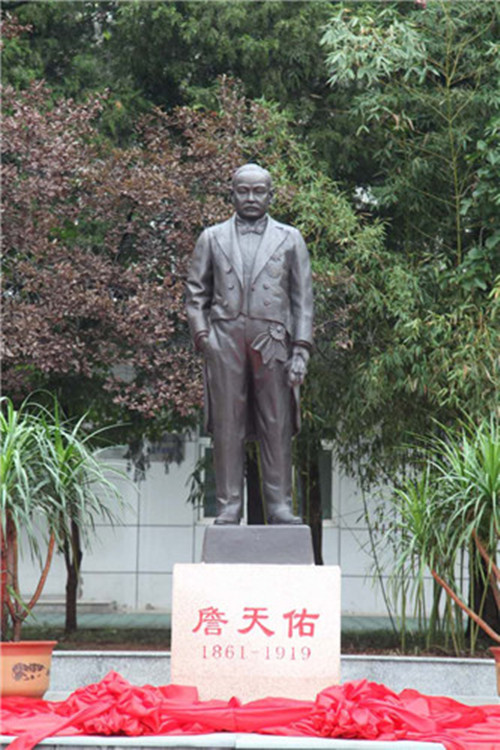Zhan Tianyou (1861-1919)
Zhan Tianyou, also known as Jeme Tien Yow, born in 1861 in Nanhai prefecture (today part of Guangzhou in Guangdong province), was a pioneering Chinese railroad engineer. Zhan is known as the "Father of China's Railroad", due to his contributions to designing and building 14 railroads during his career spanning 31 years.
 |
| The statue of Jeme Tien Yow. [Photo provided to chinadaily.com.cn] |
In 1872, as a 12-year-old, he was chosen to be sent to the United States as part of the Chinese Educational Mission, China's first experiment in education abroad initiated by reform minded officials during the Qing dynasty (1644-1911).
In 1878, he was admitted to the Sheffield Scientific School of Yale University, majoring in Civil Engineering, with an emphasis in railroad construction, and received his PhD in 1881.
He returned to China the same year, studying and teaching at the Fuzhou Naval Academy. In 1885, commissioned by the governor of Guangdong-Guangxi, Zhang Zhidong, Zhan conducted the first Chinese survey of the Guangdong coastline for naval defense purposes.
His use of pneumatic caissons underwater in constructing the piers for the Luan River Bridge in 1894, enabled him to become the first Chinese member of Britain's Institution of Civil Engineers.
In 1905, Zhan was appointed as chief engineer for the Peking-Kalgan Railway, the first railway constructed in China without foreign assistance. In the beginning, some people were skeptical that the government would be able to construct the railroad by itself, due to its location in the rugged mountains north of Peking. However, Zhan showed he was an able engineer and completed the work two years ahead of schedule and under budget. He was subsequently elected a member of the North British Academy of Arts in 1909.
Zhan was a founding member of the Chinese Institute of Engineers, which has cultivated generations of railroad construction experts. He is also known for his frugality in daily life and generosity in supporting the poor through the institute he founded.



 Print
Print Mail
Mail

